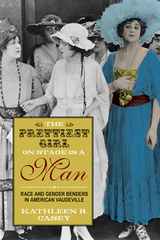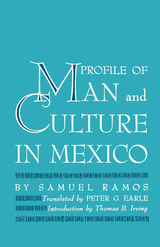4 start with P start with P

An inside look at a scene and a career, Play Like a Man is the evocative and humorous tale of one woman’s life in the trenches and online.

Several French theorists have recently attempted a new account of rights, one that would replace the discredited Marxist view of rights as mere formalities concealing the realities of class domination. In this final volume of Political Philosophy, Luc Ferry and Alain Renaut summarize these efforts and put forward their own set of arguments.

In this lively and enlightening study, Kathleen B. Casey explores the ways in which the gender- and race-bending spectacles of vaudeville dramatized the economic, technological, social, and cultural upheaval that gripped the United States in the early twentieth century. She focuses on four key performers. Eva Tanguay, known as “The I Don’t Care Girl,” was loved for her defiance of Victorian decorum, linking white womanliness to animalistic savagery at a time when racial and gender ideologies were undergoing significant reconstruction. In contrast, Julian Eltinge, the era’s foremost female impersonator, used race to exaggerate notions of manliness
and femininity in a way that reinforced traditional norms more than it undermined them. Lillyn Brown, a biracial woman who portrayed a cosmopolitan black male dandy while singing about an antebellum southern past, offered her audiences, black and white, starkly different visual and aural messages about race and gender. Finally, Sophie Tucker, who often performed in blackface during the early years of her long and heralded career, strategically played with prevailing
ideologies by alternately portraying herself as white, Jewish, black, manly, and womanly, while managing, remarkably, to convince audiences that these identities could coexist within one body.
Analyzing a wide assortment of primary materials—advertisements, recordings, lyrics, sheet music, costumes, photographs, reviews, and press accounts from the era—Casey looks not only at gender and racial impersonation but also at how spectators reacted to these performances.

Profile of Man and Culture in Mexico, originally written in 1934, is addressed to the author’s compatriots, but it speaks to people, wherever they are, who are interested in enriching their own lives and in elevating the cultural level of their countries. And it speaks with a peculiar timeliness to citizens of the United States who would understand their neighbors to the south.
Samuel Ramos’s avowed purpose is to assist in the spiritual reform of Mexico by developing a theory that might explain the real character of Mexican culture. His approach is not flattering to his fellow citizens. After an analysis of the historical forces that have molded the national psychology, Ramos concludes that the Mexican sense of inferiority is the basis for most of the Mexican’s spiritual troubles and for the shortcomings of the Mexican culture.
Ramos subscribes to neither of the two major opposing schools of thought as to what norms should direct the development of Mexican culture. He agrees neither with the nationalists, who urge a deliberate search for originality and isolation from universal culture, nor with the “Europeanizers,” who advocate abandonment of the life around them and a withdrawal into the modes of foreign cultures. Ramos thinks that Mexico’s hope lies in a respect for the good in native elements and a careful selection of those foreign elements that are appropriate to Mexican life. Such a sensible choice of foreign elements will result not in imitation, but in assimilation. Combined with the nurturing of desirable native elements, it will result in an independent cultural unit, “a new branch grafted onto world culture.”
Ramos finds in Mexico no lack of intelligence or vitality: “It needs only to learn.” And he believes that the future is Mexico’s, that favorable destinies await a Mexico striving for the elevation of humanity, for the betterment of life, for the development of all the national capacities.
READERS
Browse our collection.
PUBLISHERS
See BiblioVault's publisher services.
STUDENT SERVICES
Files for college accessibility offices.
UChicago Accessibility Resources
home | accessibility | search | about | contact us
BiblioVault ® 2001 - 2024
The University of Chicago Press









